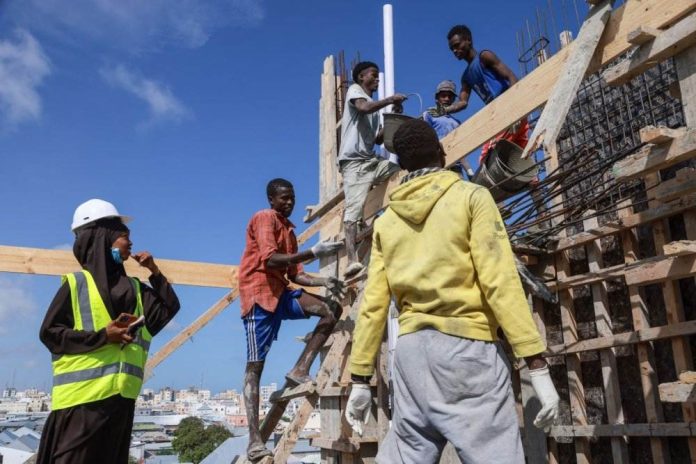Facebook Twitter (X) Instagram Somali Magazine - People's Magazine
The International Trade Union Confederation (ITUC) has strongly condemned the bilateral agreements signed between Somalia and Saudi Arabia, which facilitate the deployment of Somali workers to Saudi Arabia for jobs related to the 2034 FIFA World Cup. These agreements have been criticized for failing to incorporate essential worker protections despite explicit recommendations from the International Labour Organization (ILO) in 2022, which urged that protections be included to align with international labour standards.
Lack of Worker Protections Sparks Outrage
The agreements, which were signed without amendments or consultations with workers’ unions, have been met with widespread condemnation. ITUC General Secretary Luc Triangle voiced his concerns, stating, “We condemn these agreements, rushed through under political pressure without consulting with workers’ unions, which disregard international labour standards, undermine workers’ rights, and create the conditions for the systematic exploitation of tens of thousands Somali migrant workers.”
FESTU, Somalia’s Federation of Trade Unions, has gone as far as to label the agreements as “modern-day slavery,” a stance that the ITUC fully supports. Triangle reaffirmed the ITUC’s commitment to exposing these agreements and holding both the Somali and Saudi governments accountable for what he described as a gross violation of workers’ rights.
International Response and Worker Advocacy
The ITUC, which represents over 191 million workers across 169 countries and territories, is using its platform to rally support for Somali workers and demand that their rights be protected. The Confederation is working alongside FESTU, which has called for justice for the Somali migrant workers who are being sent abroad under exploitative conditions, with little regard for their well-being or legal protections.
In particular, the ILO’s 2022 recommendations highlighted the need for safeguards against forced labour, long working hours, and unsafe working conditions, yet these issues remain unaddressed in the agreements. The lack of meaningful protections has led to fears of severe exploitation, with Somali workers subjected to poor conditions in the Middle East while working on projects linked to the global event.
Government Accountability and Calls for Dialogue
The ITUC has called on the Somali government to honor its previous commitments to engage with FESTU in social dialogue. The Confederation insists that the Somali government must review the agreements and ensure the inclusion of necessary worker protections to comply with international standards. “The commodification of Somali workers to meet labor demands for the FIFA World Cup, while being denied their rights, is a gross violation of human rights and international labour standards, and must be stopped,” Triangle stated.
The ITUC has vowed to continue fighting for the rights of Somali workers and to press for the revocation of these exploitative agreements. The Confederation believes that every worker should be afforded dignity, respect, and the protection of their basic human rights, particularly when working abroad under the terms of international agreements.
The Role of Independent Unions in Holding Governments Accountable
FESTU’s role in denouncing the agreements underscores the importance of independent trade unions in protecting workers’ rights. The ITUC’s support for these unions highlights the ongoing battle for fair labour practices globally, where trade unions are often at the forefront of advocating for fair wages, safe working conditions, and protections against exploitation.
Both the ITUC and FESTU are urging the international community to stand in solidarity with Somali workers and demand that the Somali and Saudi governments amend the agreements. These actions are seen as vital steps toward ensuring the dignity and safety of workers involved in large-scale projects like the World Cup.

